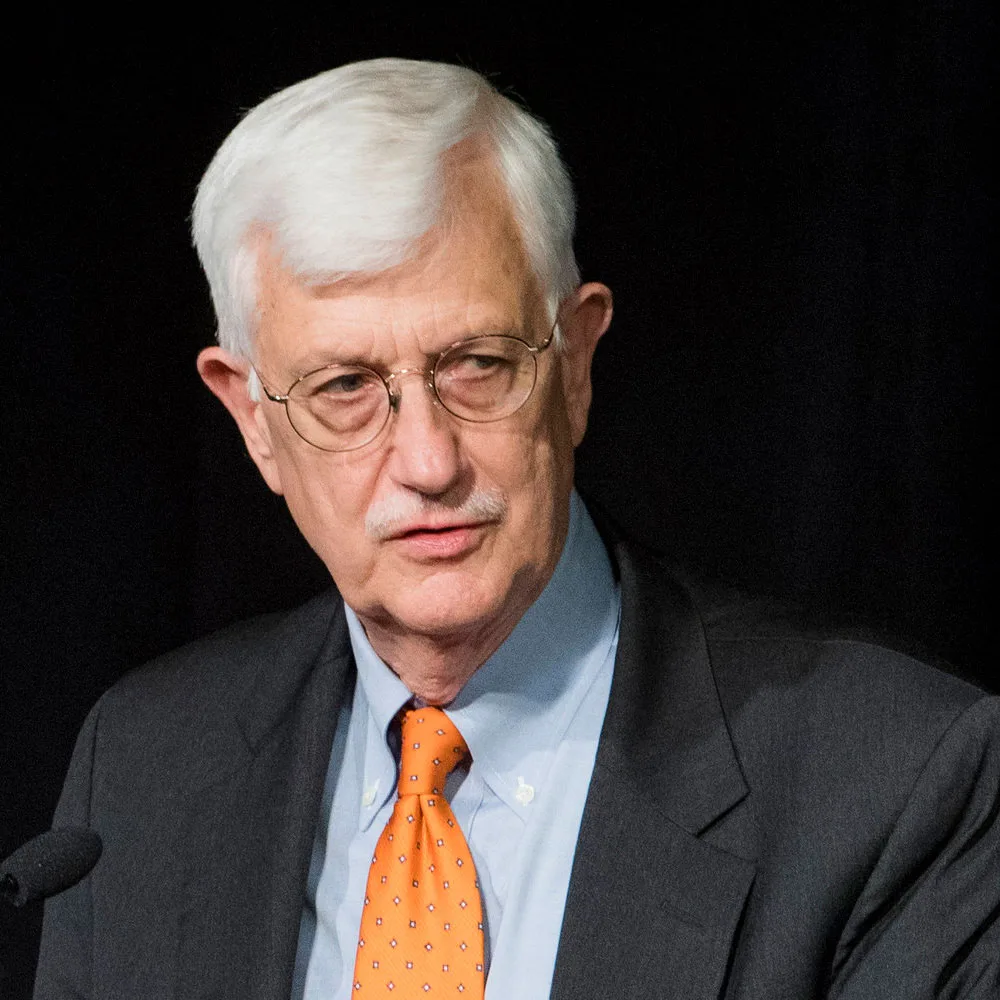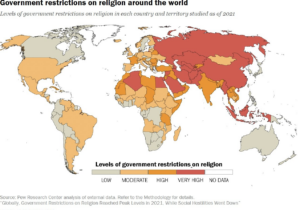Today will mark the first time many of us will be unable to worship in church for Easter. However, we should all be grateful for the fact that we live in a free country where it is a public health concern that prevents us from gathering for worship rather than persecution. We are blessed to live in a nation that upholds the God-given right of religious freedom.
Unfortunately, many of our co-religionists cannot say the same. Even as we remember that Jesus rose from the dead in Jerusalem, Christians in the Middle East experience some of the highest levels of persecution in the world.
Many followers of Christ enter church on holy days with the thought in the back of their minds that they may not live to see the end of the service. One year ago, over 290 people were killed in a series of terrorist attacks in Sri Lanka as Christians gathered on Easter Sunday. Three years ago, more than 44 Coptic Christians were killed in two terrorist attacks on Palm Sunday. In 2016, the Taliban killed at least 69 and wounded more than 300 in a church attack on Easter morning in Lahore, Pakistan.
Sadly, it is not only on Christian holidays that persecution strikes. According to the latest World Watch List, published by Open Doors, in 2019at least 2,983 Christians were killed for their faith, 9,488 churches or Christian buildings were attacked or destroyed, and 260 million Christians live in the top 50 countries with high levels of persecution.
One of the most troubling areas of persecution is in Nigeria, where persecution is on the rise. The level of violence across central and northern Nigeria is perhaps the most severe in the world and may rightly be labeled as genocide. Across sub-Saharan Africa, religious pluralism is under threat in ways similar to what the Middle East has witnessed in recent years.
There are almost one and a half million Christians in Saudi Arabia, mostly migrant workers from places such as the Philippines, who cannot attend church because non-Muslim houses of worship are completely prohibited in the kingdom. If someone decides to convert to Christianity, he or she is forced to keep it secret as anyone opposing the government-sanctioned Wahhabi Islam can receive severe punishment. For example, Saudi Arabia harshly oppresses its Shia Muslim minority, who compose 10-15 percent of the population, and barbarically beheaded 39 Shias in a mass execution one year ago.
For the 97 million-plus Christians in China, they are forced either to attend a government-sanctioned church (where the Communist Party chooses who their pastors or priests are) or one of the many underground churches that the state is also seeking to shut down. China is implementing a Social Credit System that uses facial recognition technology to “grade” citizens with how they conform with the state’s communist vision for good citizenship. Christians may find themselves getting graded negatively based on their religious practice. In Xinjiang, there are more than a million Uighur Muslims in concentration camps. This wholesale war on religion is a crime against human dignity, and the world, including Christians, ought to stand together in opposition against these actions.
Christians and other religious minorities face incredible adversity in Iran as well. Bahais have no public recognition whatsoever and cannot attend university, get married, or even bury their dead. The Christian community in Iran also faces adversity. The indigenous community (Assyrians, Armenians, and Chaldeans) are able to attend church, but their services and activities are strictly monitored by the state. Iran’s evangelical Christian community has been particularly persecuted (with the state targeting pastors and their families). Groups linked to the regime have also threatened to destroy the tomb of Mordechai and Esther, Judaism’s holiest site in the country. The Iranian government is failing to protect religious minorities.
Given that Christians in these authoritarian states are unable to mount advocacy campaigns in their own defense, what can we do to help?
As the Apostle Paul writes in 1 Corinthians 12:26, “If one part of the body suffers, all the parts suffer with it; if one part is honored, all the parts share its joy.” As Americans living in a free country, what we have found is that advocacy for our persecuted brothers and sisters and for the right of all people to exercise their religious freedom can yield fruit and we encourage our fellow citizens to join us in a defense of all religious believers throughout the world.
When ISIS was committing genocide against Iraq and Syria, we called on the Department of State and Congress to respond. Christian patriarchs and senior prelates from the historic Christian churches of the Middle East came to the White House, and Americans from across the country descended on Congress to call for a response. Thankfully, we were part of the coalition of voices that succeeded in 2016 in securing from the US Department of State a declaration that genocide was occurring in Iraq against Yazidis, Christians, and Shia Muslims.
Eventually hundreds of millions of dollars of US humanitarian assistance was provided to the Nineveh Plains in Iraq, though much of it failed to reach those Christian and other minority communities most in need of that assistance. Virtually none reached the thousands of Iraqi Christians still internally displaced in Erbil or elsewhere in Iraq.
Ongoing security concerns in Iraq and Syria and a failure to move quickly have meant continued challenges for these communities and the need for more assistance. Nevertheless, there are encouraging signs at present that more focused and timely assistance to Christians and other minorities is being provided in Iraq by the US government, and for this we are grateful.
Politics aside, we are willing to work with everyone to advocate for the persecuted. We have a great amount of appreciation for Secretary of State Mike Pompeo, Vice President Mike Pence, and Ambassador-at-large for International Religious Freedom Sam Brownback and the manner in which they all have brought their Christian conviction to this issue. The Trump administration has done unprecedented work of elevating international religious freedom to the forefront of US foreign policy. In particular, we commend them for hosting two consecutive Ministerials to Advance Religious Freedom at the State Department and are excited to see that these will continue to take place on a global scale. This is a sustainable mark they have made on this issue in international relations and will always be grateful to them for it.
We are thankful that this issue has remained a strongly bipartisan one. We have worked with Senator Chris Coons to help secure the release of American Pastor Andrew Brunson when he was imprisoned in Turkey. Senator Chris Murphy is the leading voice of accountability for human rights violations in Saudi Arabia (and a supporter of religiously pluralistic Lebanon). Senator Marco Rubio has been a leader in confronting China for its persecution of Uighur Muslims and Christians. Congresswoman Anna Eshoo has been an outspoken advocate for Armenian and Assyrian Christians (as that is her heritage). Congressmen Chirs Smith and Brad Sherman are strong leaders in the House Foreign Affairs Committee on this issue in many countries.
Our democratic system is designed so that citizens can petition the government on issues of importance to them. This Easter, we may pray in the privacy of our homes. Next Easter, we trust that we will once more worship in our churches. What better way to show support for persecuted Christians and other religious minorities than to exercise our rights as American citizens to advocate for those who have no such rights?







 Live in the DC area? Sign-up for Providence's in-person events list!
Live in the DC area? Sign-up for Providence's in-person events list!